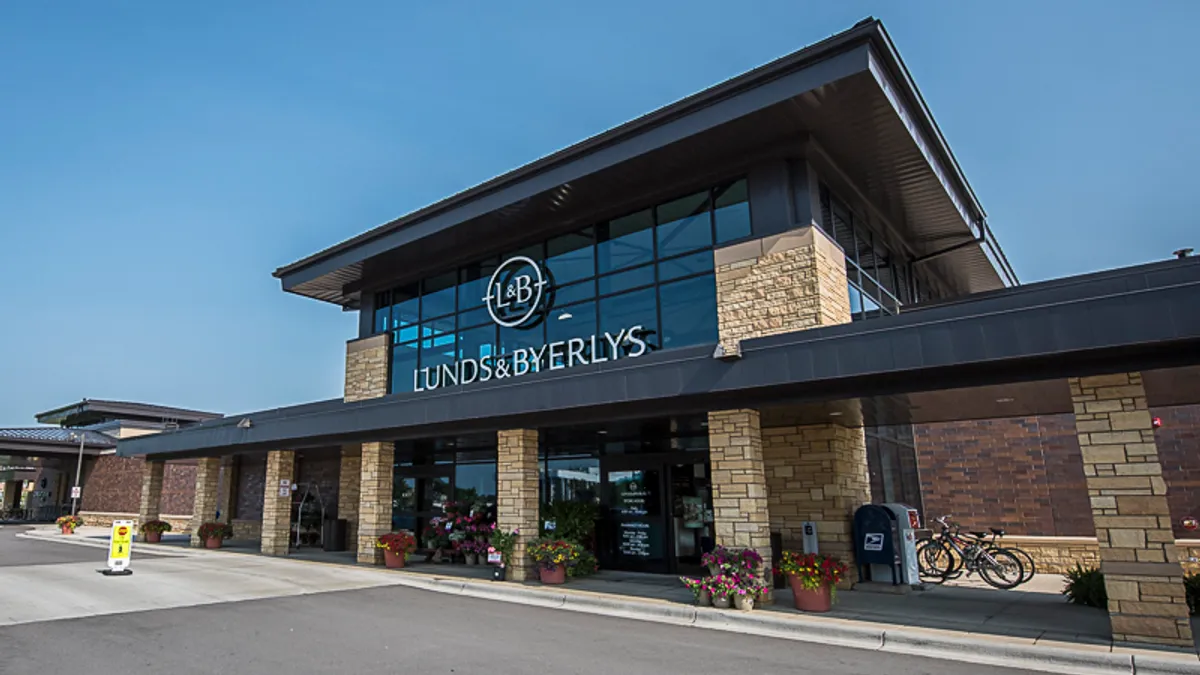Dive Brief:
- Twin Cities grocer Lunds & Byerlys has partnered with Phood Solutions, a food waste technology company, in an effort to reduce annual food waste by an anticipated 150,000 pounds, according to an emailed Tuesday press release.
- The grocer is looking to minimize food waste at its deli food bars by using Phood’s scale, computer vision and artificial intelligence as well as reporting to make necessary adjustments to its daily offerings.
- Lunds & Byerlys’ initiative is coming at a time when food waste is becoming a more prominent concern in the grocery industry and particularly playing a prominent role in sustainability efforts.
Dive Insight:
Phood’s technology and feedback will give Lunds & Byerlys employees the ability to scan and weigh food as it is added to the grocer’s deli food bars and then again before food is thrown away, according to the press release. With this data, the grocer can make changes to ensure less food is wasted by providing shoppers with the proper food offerings at the right time.
Phood’s solution is a combination of hardware and software that automates food waste tracking for food retailers, according to the announcement.
Aaron Daly, vice president of strategic development at Ecology Action and previously principal at the Ratio Institute, noted in a recent interview that Phood’s system informs store employees and managers of what was bought for different departments, where it’s all going and what it’s costing the grocer. This in turn makes it easier for grocers to know what to order less of, said Daly, who is familiar with Phood from the Ratio Institute’s work with the company.
“It’s a real-time management tool that’s very powerful, saves money [and] reduces food waste,” said Daly, who was also a former director of energy management at Whole Foods Market.
The Monday press release credits Lunds & Byerlys with being the first retailer in the Twin Cities to adopt Phood’s food waste management solution. Along with the food waste reductions estimated with the company’s technology, Lunds & Byerlys has a partnership with Second Harvest Heartland’s Food Rescue Program and also donates food to local pig farms. The grocer said it is stopping nearly 6 million pounds of food from becoming waste annually, the press release notes.
In Coresight Research findings released last June, 90% of surveyed grocers considered food waste reduction to be key to meeting corporate sustainability targets. However, 51% of surveyed retailers said they do not have the technology needed to prioritize this sustainability initiative while 52% said they lacked management support for effective food waste reduction.
“The gap right now, I think, is that grocers need guidance on how to find the best tools and how to integrate them into their businesses,” Daly said.
Grocers often rely on partnerships with companies like Too Good To Go and Flashfood, which sell food that would otherwise go to landfills for a discounted price, to bolster food waste efforts. But more food retailers are beginning to integrate technology, like artificial intelligence, that will help with management and better limit food waste.
For example, SpartanNash at the end of last year began piloting Afresh Technologies’ predictive ordering and inventory management system at 10 Family Fare stores in the Grand Rapids, Michigan, area with the goal of improving forecasting, procurement, inventory control and food handling to decrease food waste.
Catherine Douglas Moran contributed to this report.













